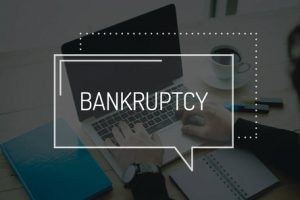How Does An Indiana Bankruptcy Affect Government Loans?

Many families in Illinois have at least one government business, housing, or education loan. For the most part, these programs are designed to give individuals who otherwise lack the funds to own a house, go to college, or start a business the financial means to pursue these goals. Unfortunately, often for reasons that are beyond the borrower’s control, these goals don’t always work out.
Whether the “government loan” is a direct loan from the federal government or a loan guarantee, the rules are very much the same.
Small Business Loans in Chicago Bankruptcies
Sometimes, SBA loans are lump-sum loans designed to pay pre-opening business costs, such as building a kitchen for a new restaurant or acquiring a defunct restaurant. Other times, SBA loans are actually guaranteed lines of credit which help startup businesses pay their bills until they become profitable.
In either case, these loans are unsecured obligations which are generally dischargeable under either a Chapter 7 or Chapter 13 bankruptcy in Indiana.
Government Housing Loans in Illinois
Like SBA loans, government housing loans take many forms. Some common ones include:
- – Income-based down payment assistance loans,
- – Veterans Administration or Federal Housing Association mortgage loans,
- – FHA 203(k) home improvement loans,
- – Mortgage modification assistance, and
- – Property Assessed Clean Energy green energy upgrade loans.
For bankruptcy purposes, all these loans are secured loans, because they are attached to a primary residence. However, since some of them are primary and some are secondary loans, they may be treated differently under the Bankruptcy Code, especially for individuals who file a Chapter 13.
Mortgage and mortgage modification loans are primary loans, meaning that if the house goes into foreclosure, these moneylenders get preference over everyone else except for certain tax authorities. If the homeowner falls behind on these obligations and files bankruptcy, the debtor has up to five years to bring the account current. During the protected repayment period, moneylenders usually cannot take any adverse action against the homeowner regardless of the account balance.
PACE and FHA 403(k) loans are essentially second mortgages, so in some cases, they can be stripped off. Assume that a homeowner has a $200,000 mortgage balance and a $20,000 home improvement loan balance on a house that’s only worth $200,000. The house’s value is too low to secure the second mortgage, so it therefore becomes an unsecured loan that’s subject to discharge.
Strip-offs are complicated matters requiring the assistance of a highly-qualified bankruptcy attorney.
Student Loans in Chicago
When Congress rewrote the Bankruptcy Code in the 197os, there were concerns that some students had attended college using government loans and then refused to repay them. Brunner v. New York Higher Education Services Corporation, one of the first major cases to address the modified student loan rule, seemingly confirmed this fear.
Ms. Brunner owed about $9,000 in student loans, a large amount of money, but not an eye-popping sum, in the early 1980s. Rather than ask for a forbearance or other assistance, she filed bankruptcy and asked for discharge without ever having paid anything toward her loan. As a result, the Second Circuit Appeals Court in New York articulated the Brunner test. To obtain a student loan discharge, the debtor must:
- – Have a good payment history,
- – Show that s/he could not maintain a reasonable standard of living if forced to repay the loan, and
- – Have a disability or other condition that’s either permanent or will last for the entire repayment period.
Many have criticized the Brunner test’s harshness and some courts have overturned it. The Seventh Circuit, which covers Illinois and Indiana, recently showed signs of doing the same thing in 2013’s Krieger v. Educational Credit Management Corp., but the Brunner test remains in effect for now.
Count on Experienced Attorneys
Bankruptcy is an excellent way to deal with delinquent or unsustainable government loan payments. For a free consultation with an experienced bankruptcy attorney in Chicago, contact the Bentz Holguin Law Firm, LLC. Convenient payment plans are available.
Resource:
isba.org/cases/7thcircuit/2013/04/10/kriegerveducationalcreditmanagement


